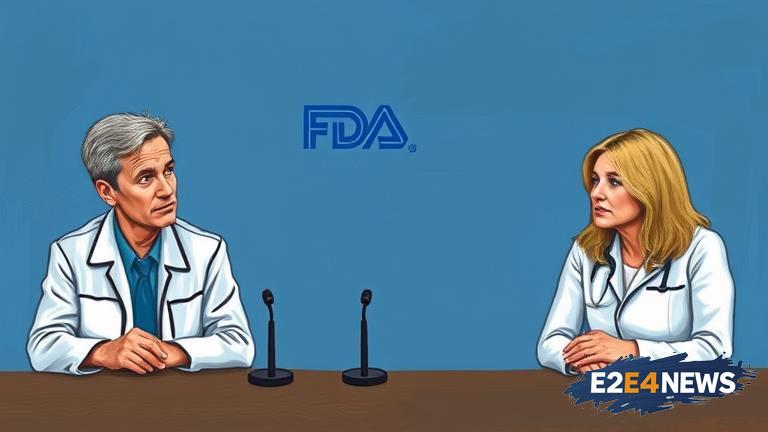A panel of experts convened by the US Food and Drug Administration (FDA) has underscored the critical need to address widespread misinformation regarding the use of antidepressants during pregnancy. This issue is of paramount importance as it directly affects the health and well-being of pregnant women and their unborn babies. The panel, comprising psychiatrists, obstetricians, and other healthcare professionals, emphasized that accurate information is essential for expectant mothers to make informed decisions about their mental health care. Unfortunately, misinformation and myths surrounding the use of antidepressants in pregnancy have led to confusion and unnecessary fear among pregnant women, potentially resulting in untreated or undertreated depression. Untreated depression can have severe consequences, including increased risk of premature birth, low birth weight, and postpartum depression. The FDA panel stressed that antidepressants, when used appropriately under medical supervision, can be a safe and effective treatment option for pregnant women suffering from depression. However, the decision to use antidepressants during pregnancy should be made on a case-by-case basis, taking into account the individual woman’s health status, the severity of her depression, and the potential risks and benefits of treatment. The panel also highlighted the importance of healthcare providers being well-informed about the latest research and guidelines on the use of antidepressants in pregnancy. This includes understanding the potential risks of antidepressant use, such as an increased risk of certain birth defects, and being able to communicate these risks effectively to their patients. Furthermore, the panel emphasized the need for more research into the effects of antidepressants on fetal development and the long-term health outcomes of children exposed to these medications in utero. By promoting accurate information and combating misinformation, the FDA and healthcare providers aim to ensure that pregnant women receive the best possible care for their mental health needs. This not only benefits the women themselves but also their families and society as a whole. The discussion also touched upon the role of social media and online platforms in perpetuating misinformation, underscoring the need for reliable and trustworthy sources of health information. In conclusion, the FDA panel’s discussion on antidepressants and pregnancy serves as a crucial reminder of the importance of evidence-based information in healthcare decision-making. By working together to address misinformation and promote accurate understanding, we can improve the health outcomes of pregnant women and their children, ultimately contributing to a healthier and more informed community. The FDA’s efforts to clarify the safety and efficacy of antidepressants in pregnancy are part of a broader initiative to enhance women’s health and address the unique challenges faced by expectant mothers. As research continues to evolve, it is essential that healthcare providers and patients remain informed and up-to-date on the latest findings and recommendations. This collaborative approach will help ensure that pregnant women receive the high-quality care they deserve, supporting their mental and physical health throughout their pregnancy journey.
